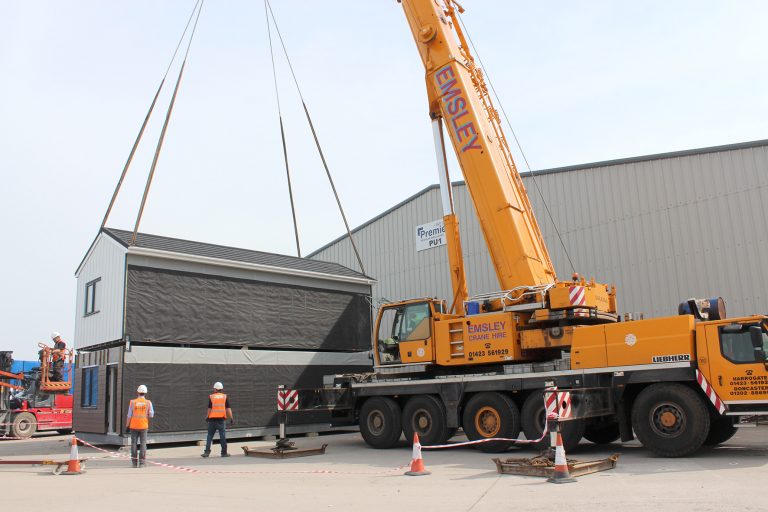In her report ‘Building a Safer Future’, Dame Judith Hackitt highlights the need for a system-based approach with a golden thread of information running through the lifecycle of each project. Here Jackie Maginnis argues the case for modular technology in providing a comprehensive information pathway. As made clear in the Hackitt report, providing a golden thread of information from concept to completion is a process that many in the construction industry are struggling to implement. Central to the concept is guaranteeing the traceability and availability of project data and all decisions relating to the design, construction, safety performance and maintenance of the building. The ‘thread’ involves the information handed over at the completion of a project which must be right from the start of client ownership and then must remain accurate throughout the building’s lifecycle. With traditional construction often key information such as product specification and maintenance details are not complete or accurate at the point of client handover which means the golden thread required for optimal running and safety cannot be achieved. Currently fire safety is divided into pre-construction regulation, covering the approval of building design, and post-construction regulation for the period of the building’s occupation and use. This two-stage approach can lead to a disconnect at handover and complicates decision making, causing a lack of information which hampers for example, the carrying out of risk assessments. Traceability and Accountability With modular construction all data can be validated and coordinated as part of a structured process, which helps provide accurate and reliable information for clients at the point of handover. It also means it is easier to identify what products and material specifications were used on previous projects should any legislation changes occur. By verifying the materials and products to be used on a construction scheme and by simplifying the onsite assembly process, volumetric modular construction offers developers an opportunity to avoid many traceability issues. Modular construction helps ensure client satisfaction and product assurances through the certainty and quality embedded into the build process. Modular builds are less susceptible to poorly specified manufacturers’ products as time can be taken upfront to validate the correct specification of materials. This allows clients to have confidence in the quality and performance that they can expect from their new building. By completing large elements of construction away from the build location, they can also reduce the length of construction time spent onsite as well as reduce the risk of unforeseen construction issues. It is standard practice for Building Information Modelling (BIM) to be embedded into the design and advanced manufacturing processes involved in modular construction. As an established method of sharing building lifecycle data across design, construction and operation – BIM is also regarded as integral to achieving a golden thread. Since 2016 the BIM mandate has required UK public sector construction projects to use BIM technology. This has helped speed up the pace of adoption during the design and construction phases. It has been predicted that government intervention around the golden thread will accelerate things further. As I have mentioned before, modular construction is not a new industry but through learnings from advanced manufacturing and best practice in other sectors, it represents a genuine opportunity to disrupt an often-disjointed industry which suffers from a lack of data traceability and accountability. With its powerful combination of controlled deliverables and customisable outputs, modular construction provides the repeatable quality and safety needed to meet client demands. It is going to be difficult to achieve the levels of assurance and traceability the UK construction industry will need to actively deliver a golden thread of information from concept to completion – without an even wider adoption of modular technology. About MPBA The MPBA plays a key role in the connecting of sectors in the modular and portable building industry. The association collaborates with specialist technical advisors to enhance innovation in the design and manufacture of modular buildings. These can be designed and manufactured from timber or steel in any size and shape to meet individual client needs while ensuring full compliance with Building Regulations. To discover how modular technology can benefit construction projects go to: www.mpba.biz





